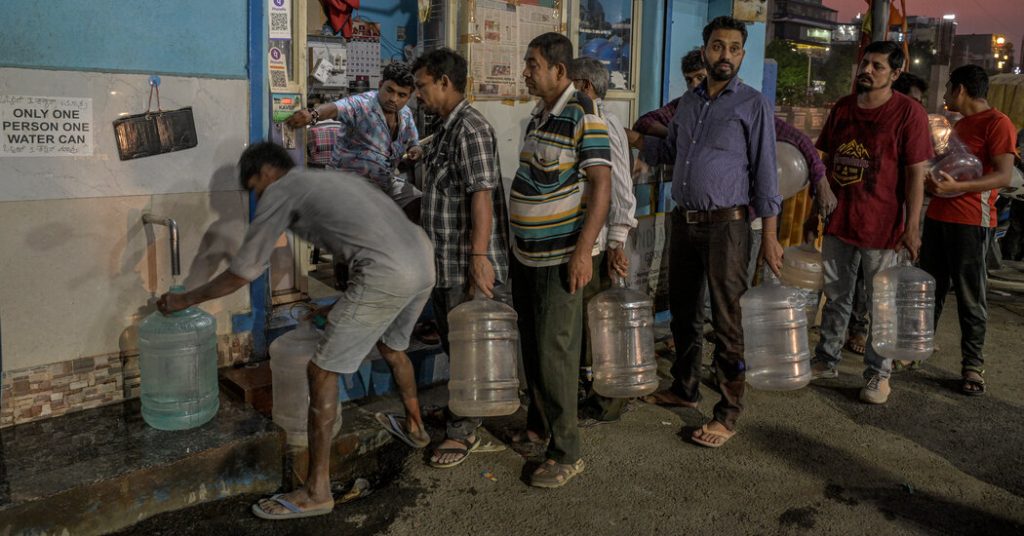The city of Bengaluru, also known as Bangalore, in India’s technology hub is facing a severe water crisis due to poor governance and outdated water management practices. Despite receiving a high amount of rainfall, the city struggles to meet the water needs of its rapidly growing population of 15 million. The government’s reliance on outdated methods, such as pumping water from reservoirs 50 miles away and drilling bore wells, has led to a situation where residents face water scarcity even for basic needs like washing and drinking.
The root cause of the water crisis in Bengaluru is attributed to a lack of foresight in planning for the city’s growth and a failure to adopt innovative solutions to manage water resources. The existing water infrastructure is inefficient and costly to operate, with energy costs consuming a large portion of the revenue generated by the water supply board. The proliferation of unregulated bore wells further exacerbates the problem as aquifers run dry due to unchecked extraction of groundwater.
Residents of Bengaluru, especially those living in areas outside the city core, face water shortages that impact their daily lives. Schools lack water for flushing toilets, washing machines remain idle, and children fall ill due to drinking contaminated water. The situation has prompted some individuals to take action, with tech workers and community leaders exploring alternative solutions such as rainwater harvesting and sewage treatment to provide affordable and reliable water sources.
Efforts to address the water crisis in Bengaluru are met with challenges, including bureaucratic hurdles and a lack of resources. Public officials acknowledge the need for a more sustainable approach to water management, but progress is slow. Short-term relief measures, such as extending reservoir water supply and anticipating spring rains, are being implemented. However, the broader goal is to instigate long-term change through public awareness and advocacy for innovative water conservation initiatives.
Despite the challenges, there are pockets of hope within Bengaluru where community-led initiatives are making a difference. Rejuvenation of lakes, rainwater harvesting projects, and sewage treatment plants are being implemented to provide safe and affordable water sources. These initiatives offer a glimpse of what is possible with a more innovative and sustainable approach to water management. Public and private investment in such projects could pave the way for a greener and more effective solution to the city’s water woes.
As Bengaluru grapples with its water crisis, there is a growing sense of urgency and optimism among residents, activists, and public officials. The city’s self-image as an innovator and tech hub has spurred efforts to find creative solutions to its water challenges. By leveraging the expertise of water researchers, community leaders, and tech workers, Bengaluru has the potential to transform its water management practices and become a model for sustainable urban development. The crisis, while daunting, also presents an opportunity for Bengaluru to rethink its approach to water management and create a more resilient and water-secure future for its residents.


